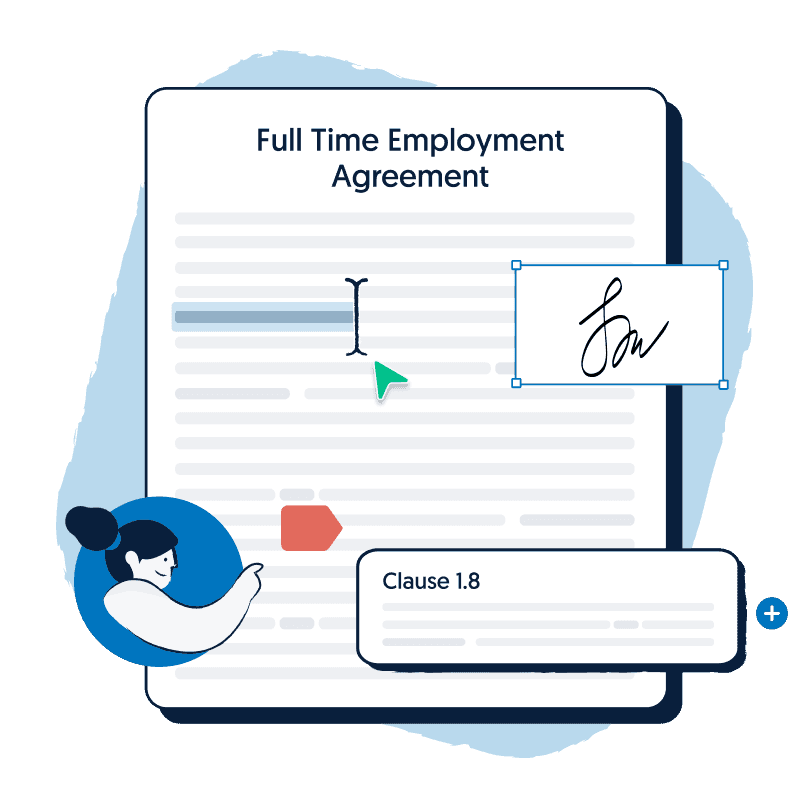There was a time not too long ago when employees were only paid in cash or by cheque.
As an employer, have you ever wondered if you can still pay employees in cash, especially since it is taxing to transfer funds electronically each pay cycle?
In this article, we’ll explain whether you can pay your employees in cash, the effects of paying your employees in cash, and answers to other frequently asked questions.
Read along!
Is it legal to pay employees cash?
The short answer is yes. As an employer, you can pay your employees in cash. Employers aren’t prevented from making cash payments to their employees provided they meet their obligations under employment law. The Australian Tax Office( ATO) states that employers are allowed to provide employee wages and salaries in part or in full through cash.
However, it isn’t advisable to do so as business owners who pay employees cash are viewed as making cash payments to avoid their tax obligations, for tax evasion, and to deny their employees their entitlements.
Wages
The ATO states that all employees have to be paid for their services. Wages have to be awarded according to the employment agreement terms that both parties agreed on. Otherwise, employers must pay employees the minimum amount under the national award.
It’s important for employers and employees to be aware that employers may not pay them in kind. This means employers can’t provide a good or service instead of payment, for example, providing an employee with food as a form of payment. Employees may receive their salary in the following forms:
- Cash
- Cheque
- Money order
- Postal order
- Electronic fund transfer to a bank account

Get your Full Time Employment Agreement legal document for free.
What is Cash Economy?
Paying employees in cash isn’t uncommon among small businesses. For example, an owner of a cafe or a local grocery store may pay their employees from the cash made on the day. It’s easier and more convenient for the small business, and the employee gets their pay faster and immediately following their working day.
The problem with this is that employers can easily avoid paying taxes and superannuation. This can create what is known as the ‘cash economy’. The term cash economy refers to transactions that occur outside the tax system.
Due to a business not reporting their economic activity accurately, they appear to make less money than they actually do when they’re lodging a tax return. Consequently, the business pays less tax.
What are an employer’s legal obligations when paying employees?
One of the primary obligations employers have when paying their employees is to provide them with a payslip within one working day of paying their employees, regardless of the method of payment. The payslip must contain the following information:
- The employee’s name
- The employer’s name
- The business’s Australian Business Number(ABN)
- The amount of pay before and after-tax
- The date of pay
- The pay period
- Superannuation contributions
- A payslip should indicate how many hours the employee worked if they work on an hourly basis
- Any bonuses, loadings or penalty rates (as well as how many hours were worked at the penalty rate)
- Taxes or superannuation deductions
Employers must also provide an employee with PAYG (pay as you go) payment summary that outlines your total income for the year and the total amount of tax deducted by the employer. This allows employees to claim any excess tax payments made by the employer.
As an employer, you are also required to report your tax and super information to the ATO every time you pay your employee. If you employ over 20 people, you can do this through the Single Touch Payroll (STP).
STP-supporting accounting software will automatically send the relevant payroll information as you pay your employees. You can use MYOB’s single touch payroll software for your business. According to the Australian Taxation Office(ATO) single touch payroll service has been available for employers since the 1st of July 2019 for businesses that employ 19 or less employees. And it has been available for businesses with employers with 20 or more employees since the 1st of July 2018.
What effect does receiving cash for work have on employees?
Receiving cash-in-hand payments may also cause problems for employees because there is no record of the employee being paid. In the event that wages are disputed at a later stage, they may have no evidence to prove their claims.
Employees also risk accepting a salary that does not accurately reflect the average wages.
The current national minimum wage is $812.60 per 38-hour week before tax from the 1st of July 2022. You can calculate your minimum rate of pay for your profession using the Fair Work Ombudsman Pay Calculator.
What are an employee’s obligations when they are getting paid in cash?
If you’re an employee who receives their pay in cash, you have the following obligations:
- You should ensure that you receive the correct salary or wage
- You should ensure your employer is making the appropriate tax deductions so you don’t end up paying a hefty amount at the end of the financial year
- Check that your employer is contributing to your superannuation and that you have worker’s compensation.
- You must receive a payslip reflecting the correct income and deductions when you get paid and a PAYG payment summary statement at the end of the financial year
- You must declare this wage or salary, including tips, as a part of your income when you file your taxes
Conclusion
If paying employees cash is more convenient for your business, you should continue to do so as long as you are following the correct procedures, you won’t be breaking any laws. However, when you’re providing cash payments to your employees, there is a higher chance of you providing misleading information to the ATO.
Record keeping and providing quick and secure payments to employees is easier through electronic bank transfers. You can also integrate your software with ATO’s STP and have it send all the relevant information with one touch of a button.
If you’re an employer and you’re unsure whether you’re meeting your legal obligations when you’re providing your employees with cash payments, you should hire a lawyer for legal advice to avoid legal consequences.
Similarly, if you’re an employee that’s receiving cash payments and you believe your employer isn’t meeting their legal obligations, you should also hire a lawyer for legal advice to potentially take legal action.

Get a fixed-fee quote from Australia's largest lawyer marketplace.






